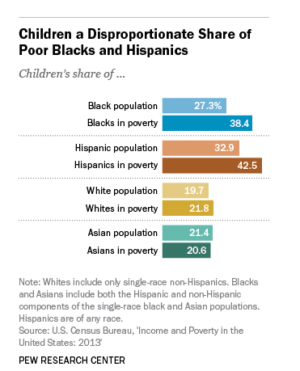The 2017 Aspen Summit on Inequality & Opportunity brought together a diverse mix of policymakers, thought leaders, social entrepreneurs, philanthropists, and practitioners to address the nation’s widening opportunity gap. Tucked between to-be-expected panels on manufacturing and hunger, was a 15 minute talk by Dr. Sarah Enos Watamura, Associate Professor of Psychology at the University of Denver and Director of the Child Health & Development Lab, on the biology of adversity. She opened by posing the question: How could a consideration of biology inform policy and practice solutions for moving families from inequality to opportunity?
Dr. Watamura highlighted research by Dr. Kimberly Noble and Elizabeth Sowell that explored the impact of poverty on the brain structure of children. According to the group’s research, increases in factors like family income and parental education were associated with increases in the surface area of brain regions related to language and executive function. The association appears to be strongest among children from lower-income families. This is not an insignificant observation. Babies of color now make up the majority of births in the U.S. and they are more likely to be born into poverty.
 While this research does not imply that a child’s future cognitive development is predisposed by their socioeconomic circumstances, it punctuates the need for health practitioners, policymakers, researchers, and community leaders to better understand the intersections of brain development and income inequality.
While this research does not imply that a child’s future cognitive development is predisposed by their socioeconomic circumstances, it punctuates the need for health practitioners, policymakers, researchers, and community leaders to better understand the intersections of brain development and income inequality.
Currently there is no direct link between Dr. Noble’s research and the development of cognitive impairment in later life, but research suggests that Latinos and African Americans face a higher risk for brain diseases like Alzheimer’s as they age. In fact, a recent report from the USC Roybal Institute on Aging and UsAgainstAlzheimer’s projects the number of Latinos in the U.S. living with Alzheimer’s, or a related dementia, could increase from 379,000 in 2012 to 3.5 million by 2060 ― a growth of 832 percent ― if a medical breakthrough is not discovered. The report conservatively estimates dementia will cost the Latino community a cumulative $2.35 trillion by 2060. These trends have serious consequences for our nation’s workforce, economy, and healthcare system.
Brain health must be a priority public health concern as our nation grows more diverse and health threats like Alzheimer’s loom large. I’m encouraged to see this dialogue take place at the Aspen Summit on Inequality & Opportunity and it is essential that it continues in research labs, congressional hearing rooms, doctors’ offices, and community centers across the country.
The opinions expressed in this article are those of the author and do not necessarily reflect those of the Diverse Elders Coalition.

